In Japanese, hou ga ii 方がいい means "it's better if" most of the time. It can be used in three ways: to advise to do something, to warn them to not do something, or to simply state you think it would be better if something happened or not.
A variant is hou ga yoi 方がよい. It's also spelled hou ga ii/yoi 方が良い, ほうがいい, ほうがよい.
Examples
It's better if... something didn't happen
- Context: Mob takes precautions.
- jiko wa nai hou ga ii kara.
事故は無い方がいいから。
Because, as for accidents, {nonexistent} is good.
Because it's better if accidents {don't happen}.
Because it's better if {there are no} accidents.
It's better if... you don't do something
- Context: a delinquent warns someone.
- {amari
machi no yatsura wo
namenai} hou ga ii
あまり街の不良(ヤツら)をナメない方がいい
It would be better if {[you] don't underestimate the guys of the town}.- yatsura ヤツら
The guys. - Is a gikun reading in this panel for:
- furyou 不良
Delinquents. - i.e. don't underestimate the guys (the delinquents) of the town: they aren't as weak as you think.
- yatsura ヤツら
It's better if... you do something
- Context: someone doesn't know the girl's name.
- ano ne~~'
あのネ~~っ
[Hey, look~~] - {kurasu no ko no namae kurai
oboetoita} hou ga
ii yo
クラスの娘の名前位
覚えといた方が
いいヨ
It's better if {[you] learned the names of the girls of [your] class at least}. - toku ni kawaii ko wa!
特にカワイイ娘は!
Specially the cute girls!
Explanation
To understand how hou ga ii 方がいい works, we need to go step by step.
First off, the phrase hou ga ii means literally "[a] way is good." This is very literally, because hou 方 means "way." As in: the way you do something.
The word hou can also mean the direction toward which something is, but that's kind of irrelevant here.
- Background:
- gogogogo ゴゴゴゴ
*menacing* (mimetic word.)
- gogogogo ゴゴゴゴ
- uwa
うわ
Wow - nanka
kaichou no hou kara
sugoi oora ga......
なんか会長の方から凄いオーラが・・・・・・
[It seems there's] an incredible aura [coming] from [the student] council president direction.- kaichou 会長
"Association leader." Council president. Chairman.
In school manga, pretty much always the student council president. - [coming]
The phrase ends in the subject marker ga が, cut short before the verb. We can assume she means "aura is [coming] from," even though there's no "coming" verb in the Japanese phrase.
- kaichou 会長
Anyway, the word ii いい, "good," can also imply something is "better" in Japanese. Because good is better than not good. So say something is good implies it's better than the hypothetical not-good alternative.
In this case, a way that's good is better than the implied not-good way.
But it's still sounds weird, because we just have "way," a noun, without any qualifiers to describe what way is it, and why would you think it's good or better or whatever.
The picture only becomes complete once we qualify the noun with a relative clause or other adjective. For example:
- jiko ga nai
事故が無い
There are no accidents. - {jiko ga nai} hou
事故が無い方
The way [in which] {there are no accidents}. (as opposed to the way in which there are accidents.)- "There are no accidents" is a relative clause introduced by "in which" in English that describes the "way." In Japanese, relative clauses just go right before the noun. (see the article on Relative Clauses for details.)
- {jiko ga nai} hou ga ii
事故が無い方がいい
The way [in which] {there are no accidents} is good. (and therefore better than the hypothetical way in which there are accidents.)
Since that way is good, it's better that way, it's better if it's that way. So that's how hou ga ii works.
方が良かった
The phrase hou ga yokatta 方がよかった is the past form of hou ga ii 方がいい, since yokatta よかった is the past of ii いい. When hou ga yokatta is used, it often means there was a better way, which the speaker didn't choose, so he regrets not choosing that better way.
Note that yokatta よかった alone can have that meaning. For example:
- Context: character regrets his appearance.
- bansoukou...
tsuketenai hou ga yokatta na
バンソウコウ・・・
つけてない方がよかったな
It would have been better if if [I] hadn't put a band-aid.- Fun fact: band-aid is a brand name, the generic name is "adhesive bandage."
- ...kami mo kitte-kureba yokatta
・・・髪も切ってくればよかった
...the hair, too, would have been better if [I] had gone cut it.- kitte-kureba - ba-form of:
- kitte-kuru
切ってくる
To cut and come. To go cut and come back.
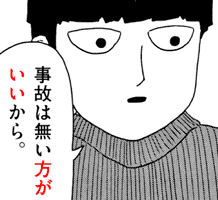
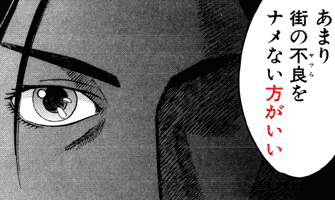
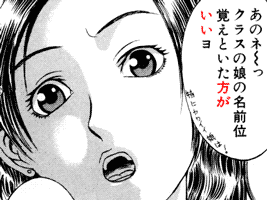
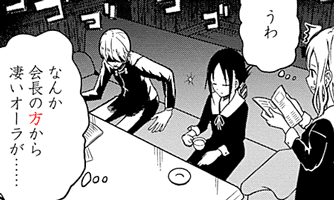
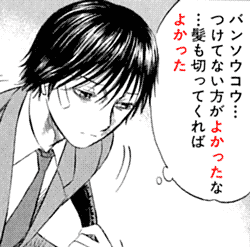
No comments: